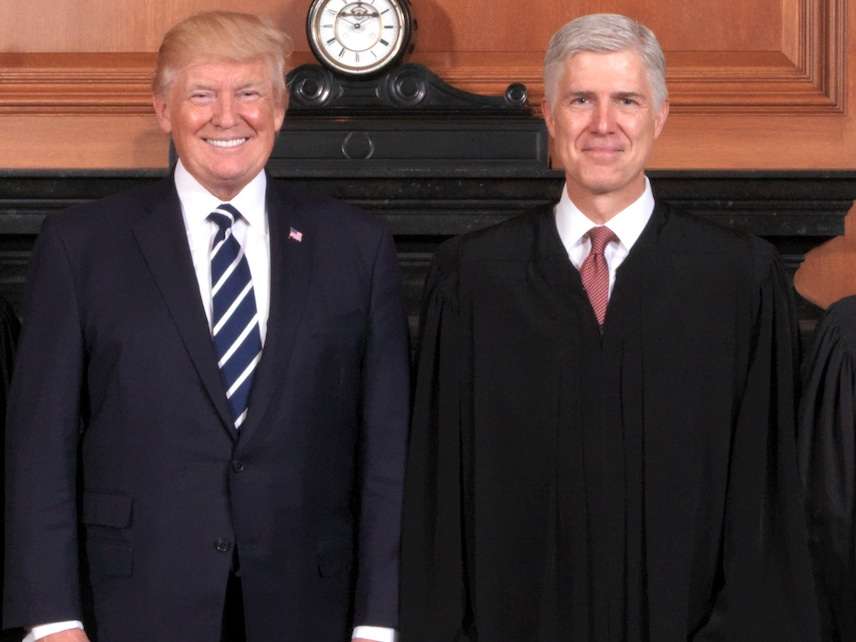Trump Is Starting to Leave His Mark on the Federal Courts
The Senate just confirmed two more of Trump's judicial picks.

President Donald Trump has yet to score a significant legislative victory. But there is one area of American politics in which the Trump administration has been winning big: federal court appointments.
So far the U.S. Senate has confirmed 10 of Trump's judicial nominees. U.S. Supreme Court Justice Neil Gorsuch has understandably received the most attention. But Trump's lower court picks are extremely important, too. Keep in mind that the Supreme Court decides only 75 cases or so each term. Meanwhile, the federal appellate courts rule on a great many more, and plenty of their decisions are never reviewed by SCOTUS.
The Trump administration is beginning to leave its mark on these lower federal courts. This week, the Senate confirmed Notre Dame law professor Amy Coney Barrett to serve on the U.S. Court of Appeals for the 7th Circuit. The Senate this week also confirmed Michigan Supreme Court Justice Joan Larsen, an advocate of broad executive power, to serve on the U.S. Court of Appeals for the 6th Circuit. Barrett and Larsen follow Trump appointees Amul Thapar, who was confirmed to 6th Circuit in March; John K. Bush, who was confirmed to 6th Circuit in July; and Kevin Newsom, who was confirmed to the 11th Circuit in August.
As things stand now, there are over 100 federal appellate and district court vacancies for Trump to fill. And according to Senate Majority Leader Mitch McConnell, he intends to steer Trump's nominees to Senate confirmation as quickly as possible.
What do Trump's judicial picks mean for the future of American law? It depends on the pick.
On the surface, Trump's nominees can all be described as "conservative." But the similarities start breaking down upon closer examination. Some of them, for example, have written in support of extensive government power to regulate economic activity, while others have insisted that economic liberty deserves far more protection from the courts than it currently receives. Such differences reflect longstanding intellectual divisions over constitutional law and judicial philosophy within the ranks of the conservative legal movement.
And let's not forget the possibility of another Supreme Court vacancy. The current justices are not getting any younger and the chance exists that one or more of them will die or retire in the near future. If that departing justice was appointed by a Democratic president, or happens to be named Anthony Kennedy, you can expect all hell to break loose over the prospect of Trump tipping the Court's balance in a more rightward direction.


Show Comments (45)